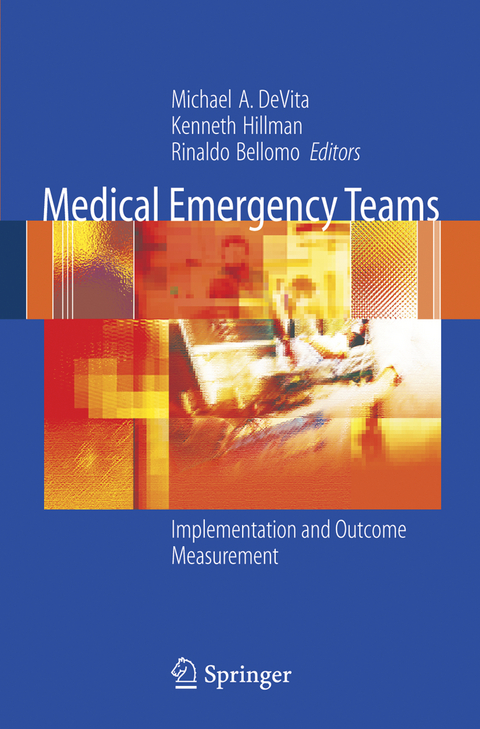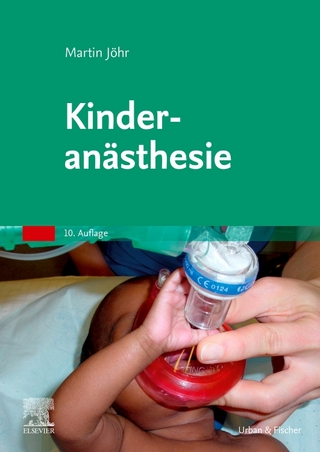
Medical Emergency Teams
Springer-Verlag New York Inc.
978-0-387-27920-6 (ISBN)
Why Critical Care Evolved METs? In early 2004, when Dr. Michael DeVita informed me that he was cons- ering a textbook on the new concept of Medical Emergency Teams (METs), I was surprised. At Presbyterian-University Hospital in Pittsburgh we int- duced this idea some 15 years ago, but did not think it was revolutionary enough to publish. This, even though, our fellows in critical care medicine training were all involved and informed about the importance of “C- dition C (Crisis),” as it was called to distinguish it from “Condition A (Arrest). ”We thought it absurd to intervene only after cardiac arrest had occurred,because most cases showed prior deterioration and cardiac arrest could be prevented with rapid team work to correct precluding problems. The above thoughts were logical in Pittsburgh, where the legendary Dr. Peter Safar had been working since the late 1950s on improving current resuscitation techniques, ?rst ventilation victims of apneic from drowning, treatment of smoke inhalation, and so on. This was followed by external cardiac compression upon demonstration of its ef?ciency in cases of unexpected sudden cardiac arrest. Dr. Safar devoted his entire professional life to improvement of cardiopulmonary resuscitation. He and many others emphasized the importance of getting the CPR team to o- of-hospital victims of cardiac arrest as quickly as possible.
Mets and Patient Safety.- Measuring and Improving Safety.- The Evolution of the Health Care System.- Process Change in Health Care Institutions: Top-Down or Bottom-Up?.- The Challenge of Predicting In-Hospital Iatrogenic Deaths.- Overview of Hospital Medicine.- Medical Trainees and Patient Safety.- Matching Levels of Care with Levels of Illness.- Creating a Mets System.- General Principles of Medical Emergency Teams.- Potential Sociological and Political Barriers to Medical Emergency Team Implementation.- Overview of Various Medical Emergency Team Models.- Early Goal-Directed Therapy.- Nurse-Led Medical Emergency Teams: A Recipe for Success in Community Hospitals.- ICU Without Walls: A New York City Model.- Hospital Size and Location and the Feasibility of the Medical Emergency Team.- Medical Emergency Teams in Teaching Hospitals.- The Nurse’s Perspective.- The Hospital Administrator’s Perspective.- Personnel Resources for Crisis Response.- Equipment, Medications, and Supplies for a Medical Emergency Team Response.- Measuring Outcomes.- Resident Training and the Medical Emergency Team.- Teaching Organized Crisis Team Functioning Using Human Simulators.- Information Systems Considerations: Integration of Medical Emergency Team Clinical Indicators.- Evaluating Complex System Interventions in Patient Safety.- Integrating MET into a Patient Safety Program.- Are Medical Emergency Teams Worth the Cost?.
| Zusatzinfo | 50 Illustrations, black and white; XX, 296 p. 50 illus. |
|---|---|
| Verlagsort | New York, NY |
| Sprache | englisch |
| Maße | 155 x 235 mm |
| Themenwelt | Medizin / Pharmazie ► Gesundheitswesen |
| Medizin / Pharmazie ► Medizinische Fachgebiete ► Anästhesie | |
| Medizin / Pharmazie ► Medizinische Fachgebiete ► Intensivmedizin | |
| Medizin / Pharmazie ► Medizinische Fachgebiete ► Notfallmedizin | |
| Sozialwissenschaften | |
| ISBN-10 | 0-387-27920-2 / 0387279202 |
| ISBN-13 | 978-0-387-27920-6 / 9780387279206 |
| Zustand | Neuware |
| Informationen gemäß Produktsicherheitsverordnung (GPSR) | |
| Haben Sie eine Frage zum Produkt? |
aus dem Bereich


